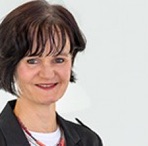Women's Economic Empowerment
-
Overview
-
Background information9 Topics
-
1. HOW DO WE DEFINE WOMEN’S ECONOMIC EMPOWERMENT?
-
2. WHAT ARE THE LIMITATIONS AND BARRIERS THAT WOMEN FACE DUE TO THEIR UNEQUAL POSITION AT THE LABOUR MARKET?
-
3. WHAT ARE THE POSITIVE EFFECTS OF WOMEN’S ECONOMIC EMPOWERMENT?
-
4. WHAT TOOLS EXIST TO SUPPORT WOMEN'S ECONOMIC EMPOWERMENT?
-
5. WHO ARE THE POSSIBLE AGENTS OF CHANGE AND HOW THEY CAN BECOME ACTIVE?
-
6. WHAT ARE THE KEY POLICY DOCUMENTS SUPPORTING WOMEN’S ECONOMIC EMPOWERMENT?
-
7. WOMEN'S ENTREPRENEURSHIP AS A TOOL TO PROMOTE WOMEN’S ECONOMIC EMPOWERMENT
-
8. ADVICE FOR FURTHER STUDY
-
CONCLUSIONS AND FUTURE PROSPECTS
-
1. HOW DO WE DEFINE WOMEN’S ECONOMIC EMPOWERMENT?
-
Glossary
-
Endnotes / References
-
Interactive learningDeepen your knowledge4 Quizzes
-
Training materialExercises for group activities2 Topics
2. WHAT ARE THE LIMITATIONS AND BARRIERS THAT WOMEN FACE DUE TO THEIR UNEQUAL POSITION AT THE LABOUR MARKET?
The question as to why to support and invest in women’s economic empowerment can be easily answered when looking at the overall context and figures, both global as well as European.
Globally, women’s participation in the labour market is lower than men´s. According to ILO statistics (4, p. 7) globally the gender gap in labour force participation was 26.5 % (75.0 % men opposed to 48.5 % women) in 2018. In Northern, Southern and Western Europe the gender gap in the labour market participation was 11.9 % (63.4 % men opposed to 51.6 % women) and in Eastern Europe 15.2 % (67.0 % men opposed to 51.8 % women).
According to UN Women: Facts and Figures: Economic Empowerment (5) the situation in the world of work globally shows clearly that women suffer from disadvantaged positions in the labour market. Below, we are summarising the key facts and showing statistical data (with a focus on European context) illustrating the following statements:
- Women are less likely to participate in the labour market than men, they are over-represented in part time jobs, informal and vulnerable employment and in some countries, they are legally discriminated against.
According to data collected by UN Women, the labour force participation rate for women aged 25-54 years is 63 % in comparison to 94 % for men. On a global view, over 2.7 billion women are legally restricted from having the same choice of jobs as men.
- Women are more likely to be unemployed than men
Statistics from the International Labour Organisation (4) show that globally, the unemployment rate in 2018 amounted to 5.2 % for men and 6.0% for women. The projection shows a relatively stable trend until 2021. According to EUROSTAT (6) the unemployment rate in the EU was 6.6% for men and 7.1% for women in 2018.
- Women are paid less than men
The so-called gender pay gap shows the relative difference in the average gross hourly earnings of women and men. According to EUROSTAT (7) the women in the EU earned on average 16% less per hour than men in 2017. There is a considerable difference between particular member states. The greatest gender pay gaps are in Estonia (25.6%), Czech Republic (21.1 %), and Germany (21.0%). The lowest gender pay gaps are in Romania (3.5%), Luxembourg (5.0%) and Italy (5.0%).
The progress is very slow,decreasing by only 1 % over the last 7 years. According to Eurostat, French women earn on average 15.5 % less than men. E.g. in 2020, French women started to work „unpaid“ from November 4th until the end of the year due to salary inequalities.
- Women are less likely to have access to social protection and financial services
Gender inequalities at the labour market result in lower access to social protection acquired through employment such as pensions, unemployment benefits or maternity protection. Lower wages result in lower access to financial capital.
- Women are constrained from achieving the highest leadership positions
Women also face other barriers such as the so-called “glass ceiling” which is used as a metaphor for barriers to achieve high positions in hierarchy. Only 5% of Fortune 500 CEOs are women.
- Women are disproportionately responsible for care work which is unpaid and remains unrecognized
Unpaid care work remains unrecognized, even though it is important for the functioning of the economy. According to UN Women (5), women tend to spend circa 2.5 times more time on unpaid care work than men. Besides, if women’s unpaid work were assigned a monetary value, it would constitute between 10 – 39% of GDP.
- Women are less likely to become entrepreneurs
In 40% of economies, women’s early-stage entrepreneurial activity (meaning being either a nascent entrepreneur, or owner of a business) amounts only to half or less than that of men’s (8).






